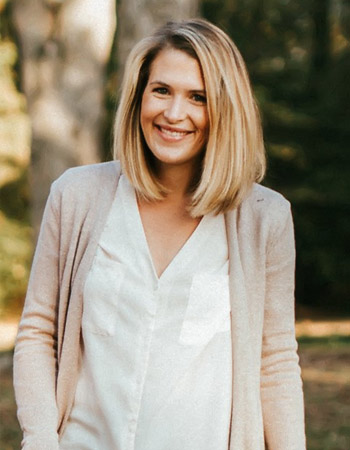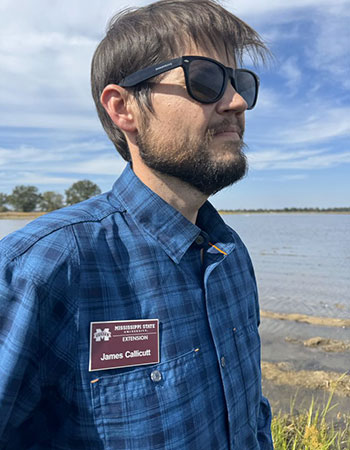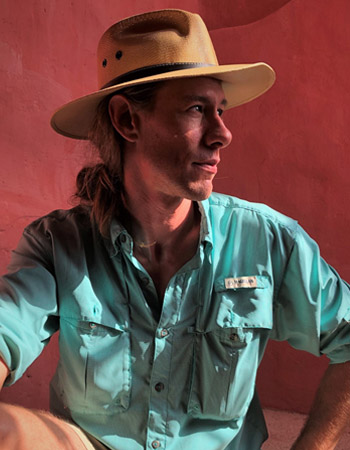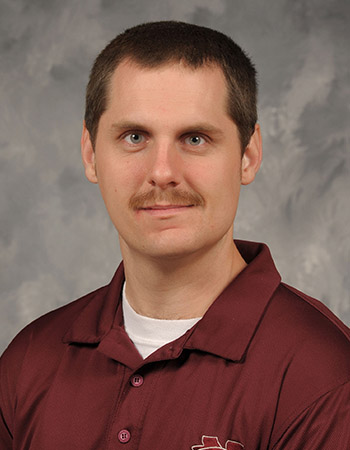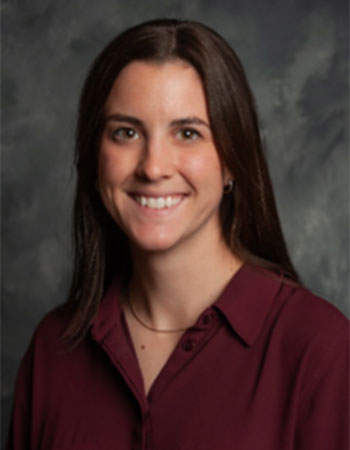December 16, 2025, 1:27 pm
About REACH
The REACH Program provides research and education support to document the benefits of conservation to mitigate non-point source pollution from working landscapes and provide other co-benefits (fish and wildlife habitat, soil, and climate) to agriculture landscapes. The program also educates citizens and youth about non-point source pollution and watershed protection and engages stakeholders in stewardship activities.
Our Mission
The REACH program aims to 1) advance conservation delivery and adoption through on-farm research that documents the benefits of conservation to mitigate non-point source pollution and enhance agricultural sustainability, 2) provide education and outreach to professionals and producers on best management practices to protect soil and water resources on farms, and 3) build capacity to support farmer stewardship through student training, collaboration, and growing funding support.
Who We Are
Beth Baker
Associate Extension Professor
662-325-7491
beth.baker@msstate.edu
Beth is an Associate Extension Professor in the College of Forest Resources, Department of Wildlife, Fisheries, and Aquaculture. Beth holds a B.S. in Biomedical Science, a M.S. in Cell and Molecular Biology, and received her Ph.D. in Forest Resources from Mississippi State University in 2015. She leads the REACH program and has been involved with the program since the it’s inception. The REACH program allows her to expand the focus of her research and extension activities, to assess the most effective management strategies to promote soil and water conservation, and ecosystem services while also helping Mississippi farms remain sustainable and profitable.
James Callicutt
Extension Instructor I & Gamebird Extension Specialist
662.325.2478
james.callicutt@msstate.edu
James is an Extension Instructor and serves as the Waterfowl and Upland Gamebird Extension Specialist in the Department of Wildlife, Fisheries and Aquaculture at Mississippi State University (MSU). He holds both a B.S. and M.S. in Wildlife Biology and Management from MSU. With over 15 years of experience, James has held various positions dedicated to the research, conservation, and management of waterfowl, other gamebirds, and the wetland and upland habitats they depend on. His previous roles include serving as a State Waterfowl Biologist and Private Lands Biologist for the Mississippi Department of Wildlife, Fisheries, and Parks (MDWFP), as well as a Private Lands Biologist for Ducks Unlimited. James co-leads the Mississippi Land Stewards (MSLS) Extension program and has actively contributed to REACH programs since 2022. Additionally, he leads the MSU Extension Gamebird Program, sharing research findings on gamebird management with a diverse range of stakeholders in Mississippi and beyond. His mission is to provide landowners, land managers, producers, and hunters with science-based management practices to enhance habitat for gamebirds and other wildlife.
Mark Hill
Extension Associate I
662.325.0681
mark.hill@msstate.edu
Mark holds a B.S. from the Mississippi State University Department of Biological Sciences, where he studied ecology, trophic interactions, and biogeography, and a M.S. from the Department of Wildlife, Fisheries and Aquaculture, where he studied nutrient transport following on-farm conservation practices. Previously he has worked on research projects examining trophic interactions in a changing climate, understanding the effect of timing of prescribed fire on the nutritional phenology of southeast loblolly pine plantations, and the use of stacked BMPs cover crop and reduced tillage to ameliorate nutrient enrichment to the Gulf of Mexico. Currently, Mark is working on delivering an Extension project that explores environmental outcomes of on-farm conservation practices, supports practices through producer incentives, re-imagines incentive structures in a pay-for-performance style path towards greenhouse gas emissions reductions, and developing a market solution for Climate-Smart grain, allowing companies to document scope 3 emission reductions within their supply chain.
Edward Entsminger
Extension Associate III
662.325.0681
edward.entsminger@msstate.edu
Edward is an Extension Associate III in the College of Forest Resources, Department of Wildlife, Fisheries and Aquaculture. Edward holds three A.A.S. degrees in Fish and Wildlife Management; Fish Management and Aquaculture; and Parks and Recreation and Wildlife Management, and a B.S. in Wildlife and Fish Conservation and Management. Graduated with a M.S. in Wildlife, Fisheries, and Aquaculture Sciences in 2014 and a Ph.D. in Forest Resources in 2022, both from Mississippi State University. He is a wildlife and fisheries biologist and general ecologist, and his research and experience focused on prairies, reclamation sites, forested environments, wetlands, mowing on roadside right-of-ways, conservation, plant and wood identification, bio-based adhesives, plywood, wood strand-based products, and agriculture. He brings a wealth of experience in natural resources, from wildlife and fisheries to forestry and sustainable bioproducts and agriculture. He is helping with coordinating and managing our Climate-Smart Commodities project, landowner, producers, and operator outreach.
Logan Tomlinson
Extension Associate I
662.544.1900
lmt382@msstate.edu
Logan is an Extension Associate I in the College of Forest Resources, Department of Wildlife, Fisheries, and Aquaculture at Mississippi State University. She holds a B.S. in Conservation Biology from Mississippi State University. During her undergraduate studies, Logan contributed to several research projects, including waterfowl abundance, web tagging, banding, habitat management, and duckling success. She also participated in a wetland monitoring project, where she gained valuable experience in water quality analysis, soil conservation, waterfowl species monitoring, macroinvertebrate sampling, and fish and amphibian research. In her current role, Logan focuses on extension projects aimed at enhancing communication between NRCS programs and underserved, small-scale farmers. Her work is designed to promote success and improve operational outcomes for landowners. Additionally, she is actively involved in the MSU Gamebird Program, which provides science-based information on the conservation of various gamebird species in Mississippi.
Contact Information
Beth Baker, Ph.D.
Director of REACH
Department of Wildlife, Fisheries, & Aquaculture
Office: 662.325.7491
Cell: 662.552.8781
Email: beth.baker@msstate.edu

